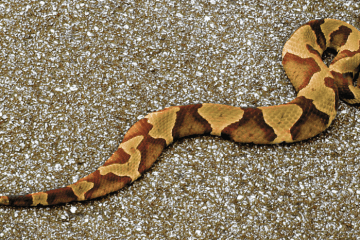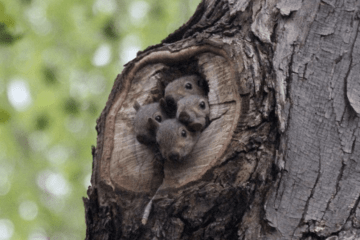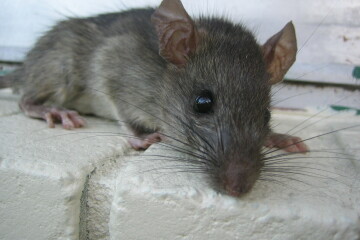5 Diseases That Household Pests Can Spread To You and Your Family

Household pests can spread many serious diseases. Household pests can spread diseases because they naturally carry the agents that cause infections. They could carry pathogens internally or externally. The diseases they spread are thus another reason for preventing household pest infestations.
In this article, we highlight five diseases that household pests can spread to you and your family. Read on and click here to learn more.
Lyme disease
Ticks cause Lyme disease. The disease is spread through the bites of ticks. Household pests could carry Lyme disease and contribute to the spread of ticks. Ticks are blood-sucking animals that attach to the fur of different animals like raccoons. Ticks can attach to the fur of raccoons while the critters move in tall bushes.
Lyme disease presents with symptoms such as skin lesions, chills, fever, and fatigue. Serious complications like neurological and cardiac issues can also result. Lyme disease can also lead to joint pains and arthritis.
Leptospirosis
Household pests like rodents carry the causative agent of leptospirosis. The disease is spread through the urine of infected animals. Humans can contract the diseases through direct contact with the urine of infected animals.
The disease occurs after direct contact of soil or water that has the urine of the infected animal with the skin or mucous membranes of the nose. The disease could also be contracted from the consumption of food and water contaminated with the urine of infected animals. The critters can directly release their urine on uncovered foods.
Since the disease occurs from the contact of urine with mucous membranes, it can be contracted from the inhalation of the urine of infected animals from contaminated surfaces.
Leptospirosis is a serious disease that presents with symptoms such as body pains, jaundice, and fever. Rats are a common household pest that spreads leptospirosis.
Tularemia
Different rodents can spread tularemia. Wild rodents are particularly involved in the spread of the disease. The disease has a worldwide spread and is caused by a bacterial agent. The bacterium that causes tularemia is called Francisella tularensis.
Humans contract tularemia from handling the carcasses of infected animals, consumption of contaminated food and water, and inhalation of the causative agent. Insects like deerflies and ticks also spread the disease through their bites. Symptoms of tularemia include intermittent fever and lymph node inflammation.
Rabies
Rabies is a viral disease that is spread through the bites of animals like bats, raccoons, coyotes, and skunks. The rabies virus is in the saliva of infected animals. Apart from bites, contact of infected saliva with open wounds can also cause the spread of the disease. Contact of the infected saliva with the mucous membrane can also cause an infection.
This potentially fatal disease presents with symptoms such as fever, headache, difficulty swallowing, hallucinations, and agitation.
Rabies is a vaccine-preventable disease. Vaccination helps to prevent the spread of the disease. On contact with any of the animals that spread the disease, it is advised that you seek medical attention.
Salmonellosis
Household pests like rats and mice cause the spread of salmonellosis. Salmonellosis is spread through the consumption of foods and water contaminated with the feces of mice and rats. Rats and mice naturally carry this disease and will spread it in the areas they infest.
Salmonellosis causes gastroenteritis, which is the inflammation of the gastrointestinal system. The disease affects the gastrointestinal system as well as other systems such as nervous and cardiac systems. These symptoms include endocarditis and meningitis. Salmonellosis also causes systemic manifestations as septicemia.
General methods through which household pests spread diseases include contaminating food and water with urine and feces, and through bites. Household pests also spread diseases that can be contracted through direct inhalation.
Different household pests can cause serious diseases to you and your family. Preventing the infestation of these pests and removing them when present will help protect you and your family. Learn more about wildlife control and removal at nuisancewildliferangers.com.
Measures for preventing household pest infestations should be instituted to prevent the spread of the different diseases the critters carry. Measures for preventing household pest infestations include identifying and blocking all possible entry points. Keeping a clean environment also helps to prevent the infestation of the critters.
Because household pests can spread different diseases to you and your family, keep them out of your home.





